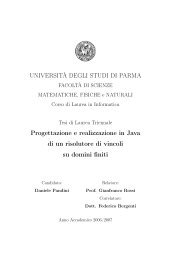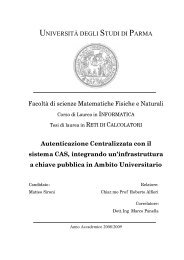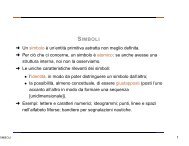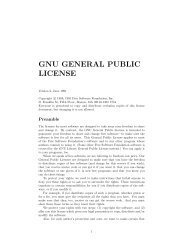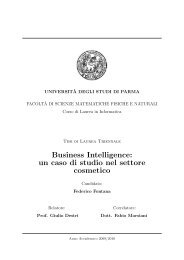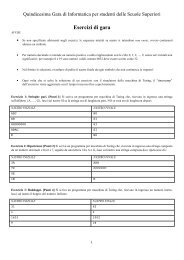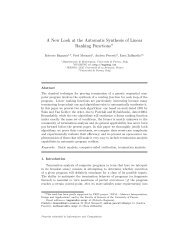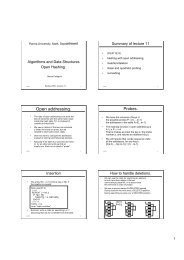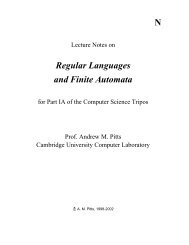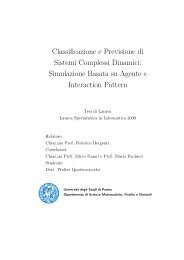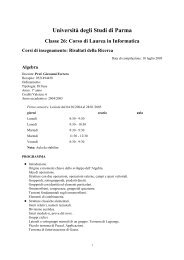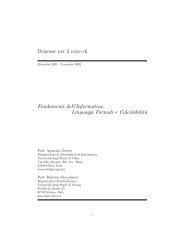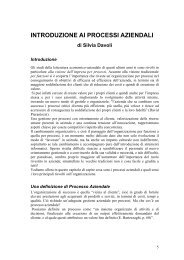a modern C++ library for the manipulation of Boolean functions
a modern C++ library for the manipulation of Boolean functions
a modern C++ library for the manipulation of Boolean functions
Create successful ePaper yourself
Turn your PDF publications into a flip-book with our unique Google optimized e-Paper software.
We have four terminal cases (note that <strong>the</strong>re could be more or less: this choice is <strong>the</strong><br />
result <strong>of</strong> statistical analysis):<br />
If i = 1 <strong>the</strong> result is t.<br />
If i = 0 <strong>the</strong> result is e.<br />
If t = 1 and e = 0 <strong>the</strong> result is i.<br />
If t = e <strong>the</strong> result is t.<br />
The implementation <strong>of</strong> operators with more than two arguments can be easily extended<br />
from <strong>the</strong> implementation <strong>of</strong> a generic binary operator, <strong>the</strong> main differences being that<br />
<strong>the</strong> splitting is per<strong>for</strong>med on three nodes on each recursive call and <strong>the</strong> hash table used<br />
to avoid duplicate recursive calls uses a triple <strong>of</strong> ROBDD pointers as its key instead <strong>of</strong> a<br />
couple. Pseudo-code <strong>for</strong> this algorithm can be found in Algorithm 3.<br />
3.2.6 Specializations <strong>of</strong> if/<strong>the</strong>n/else<br />
CORAL also provides some specializations <strong>of</strong> <strong>the</strong> ite operator, <strong>the</strong> most important being<br />
var_ite and gen_var_ite; <strong>the</strong>ir purpose is to provide a more efficient implementation<br />
<strong>of</strong> ite <strong>for</strong> some particular cases, which will occur in particular during <strong>the</strong> algorithm <strong>for</strong><br />
<strong>the</strong> elimination <strong>of</strong> entailed variables that will be presented later.<br />
For example, gen_var_ite(i, t, e) implements <strong>the</strong> particular case when i is a<br />
ROBDD whose root has 1 and 0 as its direct true and false successors respectively.<br />
gen_var_ite_g and gen_var_ite_h are fur<strong>the</strong>r specializations <strong>of</strong> gen_var_ite: <strong>the</strong><br />
first is used when we know that <strong>the</strong> root <strong>of</strong> i is labeled with a variable that is smaller<br />
than <strong>the</strong> one which labels <strong>the</strong> root <strong>of</strong> t, while <strong>the</strong> second is used when we know that <strong>the</strong><br />
root <strong>of</strong> i is labeled with a variable that is smaller than <strong>the</strong> one which labels <strong>the</strong> root <strong>of</strong> e.<br />
var_ite(i, t, e) and its fur<strong>the</strong>r specializations var_ite_g and var_ite_h are<br />
analogous, but we add <strong>the</strong> hypo<strong>the</strong>sis that <strong>the</strong> variable which labels <strong>the</strong> root <strong>of</strong> i does<br />
not occour in t and e.<br />
Here’s <strong>the</strong> list <strong>of</strong> all cases considered in <strong>the</strong> implementation <strong>of</strong> gen_var_ite(f, g, h).<br />
Fur<strong>the</strong>r in<strong>for</strong>mations, along with a correctness pro<strong>of</strong>, can be found in [BS98]. For <strong>the</strong><br />
sole purpose <strong>of</strong> writing <strong>the</strong>se cases more simply, we consider 0var and 1var to be special<br />
variables that are greater than all o<strong>the</strong>r variables.<br />
Case 1 If fvar = gvar = hvar,<br />
return make_node <br />
fvar, gtrue, htrue .<br />
Case 2 If fvar < gvar < hvar or fvar < gvar = hvar or fvar < hvar < gvar,<br />
return make_node fvar, g, h .<br />
Case 3 If fvar = gvar < hvar,<br />
return make_node fvar, gtrue, h .<br />
3.2 ROBDD algorithms 15



